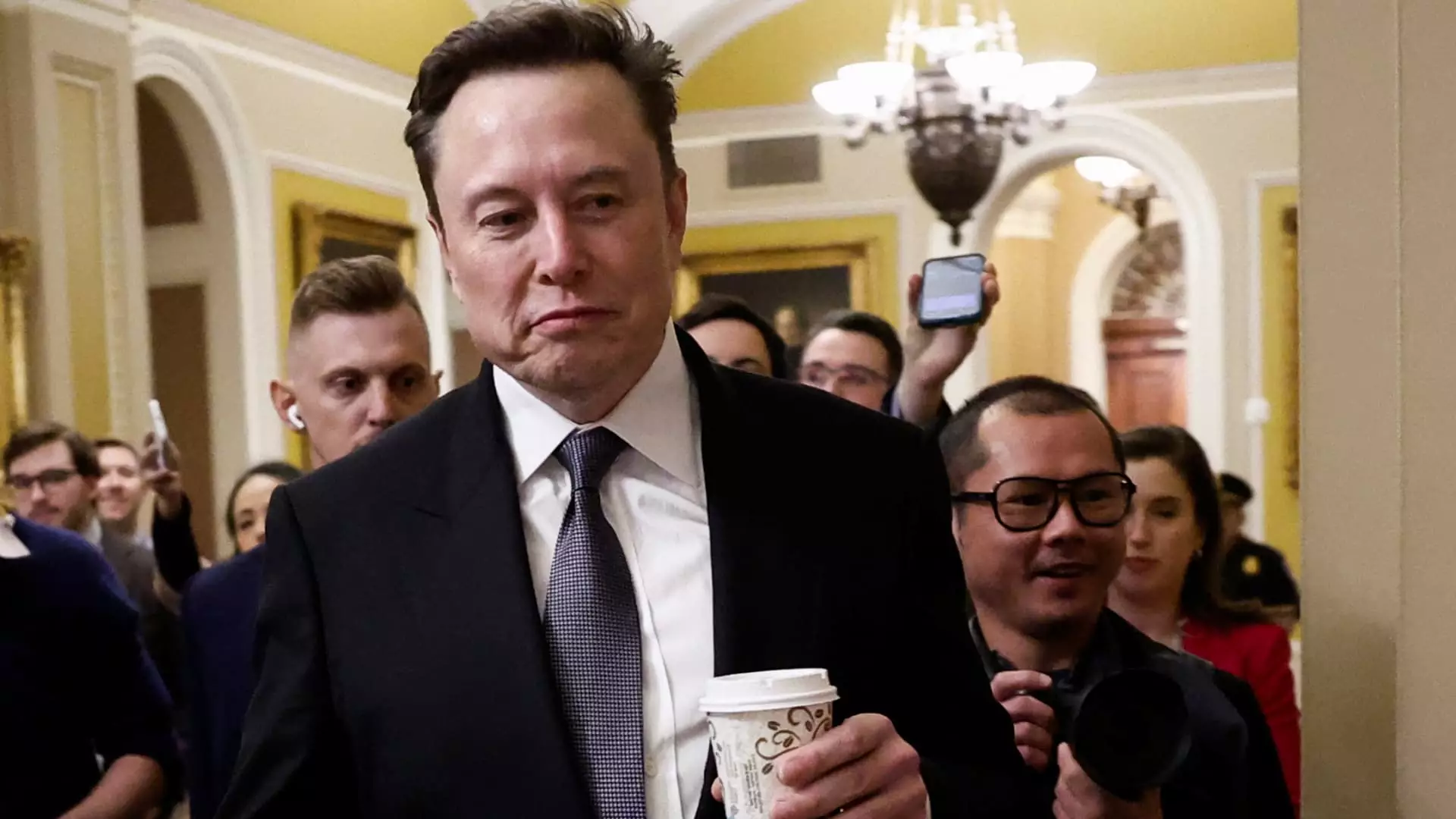In a recent escalation of tensions within Congress, House Democrats Jim McGovern and Rosa DeLauro have voiced their discontent regarding the influence exerted by Tesla CEO Elon Musk on crucial legislative efforts. This argument comes in the wake of a bipartisan government funding bill that aimed to bolster regulations on U.S. investments in China but ultimately fell victim to partisan maneuverings, largely driven by Musk’s business interests in the Asian superpower. The conflict highlights an ongoing struggle within the U.S. political realm, showcasing how individual corporate power can sway legislative decisions that potentially impact national security.
McGovern has articulated that the scrapped provision of the bill would have offered an essential framework for safeguarding cutting-edge technologies like artificial intelligence and quantum computing. These areas are vital to maintaining competitive advantages for the United States amid a backdrop of growing global tensions. By underscoring Musk’s role in undermining this initiative, the representatives are raising important questions about the intersection of corporate influence and public policy and the potential risks associated with compromising American technological leadership.
Musk’s direct engagement with Chinese authorities and his ambition to expand Tesla’s operations in China have brought scrutiny to his motivations. As the CEO of the only foreign automaker operating a wholly-owned factory in China, he stands to gain substantially from favorable relations with Beijing. Critics, including DeLauro, suggest that Musk’s financial priorities may compromise U.S. security interests, particularly when he seeks to establish an AI data center in China. The implications of this are profound; the notion that a private individual, albeit a billionaire entrepreneur, could hold sway over the geopolitical landscape raises alarms about the implications for national policy.
Moreover, his engagement with SpaceX and the bid to suspend Starlink services over Taiwan at the behest of Russian and Chinese officials further complicate the narrative. The Taiwan situation remains a sensitive issue between the U.S. and China, and any actions perceived as accommodating the Chinese government could have severe ramifications for U.S. diplomatic standing in the region. Musk’s financial investments and the significant sway he holds within U.S. political circles exemplify a modern dilemma: where does the line exist between fostering international business relations and jeopardizing national interests?
The fallout from this political interplay can be observed in how party lines have grown increasingly decisive in shaping governmental discourse. Former President Donald Trump’s involvement in urging Republicans to abandon the funding proposal shows the influence of partisan politics on critical financial and security-related issues. With such negotiations entangled in broader electoral strategies, the potential for bipartisan solutions appears increasingly dim.
DeLauro’s critique of Musk, which included a jab at his capacity to maneuver political tides, posed a striking indictment of contemporary leadership. Her use of the term “President Musk” reflects a growing sentiment among some political leaders that private interests have begun to shadow public governance. As Musk has actively sought to back Trump’s administration through campaign contributions and strategic affiliations, questions arise about the ethical dimensions of such support amidst national discourse concerning major economic and policy decisions.
As the U.S. grapples with the implications of Musk’s influence and the subsequent legislative failure, one can’t help but muse about the greater repercussions on national security and technological innovation. With the horizon filled with rapid advancements in tech that could shape the future, it is essential for legislators to develop frameworks that prioritize national security over individual corporate ambitions. The challenges of managing relationships with foreign entities, especially those with diverging political agendas, remain paramount.
Looking ahead, the case surrounding Musk serves as a cautionary tale about the emerging dynamic between corporate lobbying and government decision-making. It underscores the necessity for clearer guidelines that can help preserve U.S. economic sovereignty, technological stewardship, and international standing in an evolving global arena. The conversation is not solely about one influential persona but rather a broader inquiry into how the U.S. can navigate the complexities intertwining economics, technology, and international diplomacy in a landscape that is anything but straightforward.

